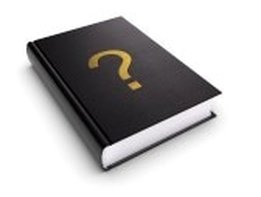
Scripture in Question: Matthew 27:9-10
Then what was spoken by Jeremiah the prophet was fulfilled: ‘They took the thirty pieces of silver, the price set on him by the people of Israel, and they used them to buy the potter’s field, as the Lord commanded me.’
The problem with these verses, according to many skeptics, is that the words quoted from Jeremiah do not appear anywhere in that book, but seem to appear in the Book of Zechariah. If the Bible is inspired, skeptics ask, why did the biblical writer incorrectly state the book from which the quotation is taken?
First, we can say that there is no confusion as to what Matthew says – the Greek text of his Gospel does clearly say “Jeremiah” and not “Zechariah,” so there is no issue of mistranslation.
Jeremiah does mention purchasing a field (Jeremiah 32:9–12), but not for 30 pieces of silver. However, when we read Zechariah we find a much closer parallel:
I told them, “If you think it best, give me my pay; but if not, keep it.” So they paid me thirty pieces of silver. And the Lord said to me, “Throw it to the potter”—the handsome price at which they valued me! So I took the thirty pieces of silver and threw them to the potter at the house of the Lord (Zechariah 11:12-13).
The wording in Zechariah is not exactly the same as that found in Matthew, so it is possible that the words quoted by Matthew were actually spoken by Jeremiah at some other point. We must always remember that the Old Testament and New Testament represent the final culmination of many years of selection and editing by the Jews and early Christians, respectively. We know that many other books were written by the biblical writers that were not included in the Bible as we have it today.
The Old Testament, for example, mentions a number of books such as the book of Nathan the Prophet which is cited, but not included in the Bible (1 Chronicles 29:29; 2 Chronicles 9:29). In the New Testament, 2 Peter and Jude both refer to the “Book of Enoch” (2 Peter 2:4, 3:13; Jude 4, 6, 13–15) which was apparently known to the New Testament apostles, but is not extant today, and Paul’s epistle to the Colossians mentions an “epistle from Laodicea” (Colossians 4:16), which is not otherwise known.
There are numerous other instances where biblical writers quoted or alluded to other works that were not included in the Bible itself and have become lost through the course of history. So there is no reason to find it surprising that Matthew may have been able to quote specific words from Jeremiah that are not found in the Book of Jeremiah in the form that we now have it. So Jeremiah may have uttered the prophecy recorded by Matthew, even if we do not have the actual source in which the prophecy was made.
But an even simpler answer to this problem exists. The Hebrew Bible was divided into three sections called the “Law,” the “Prophets,” and the “Writings” (see Luke 24:44). The scrolls on which the biblical books were written were sometimes referred to by the name of their first book (thus Jesus refers to all the “Writings” as “Psalms” in Luke 24:44), and the first book in the division known as the Prophets was Jeremiah. So, when Matthew – whose Gospel most closely reflects Jewish culture – wrote that the prophecy he referred to was found in Jeremiah he may simply have meant in the scroll of the Prophets.
 RSS Feed
RSS Feed
